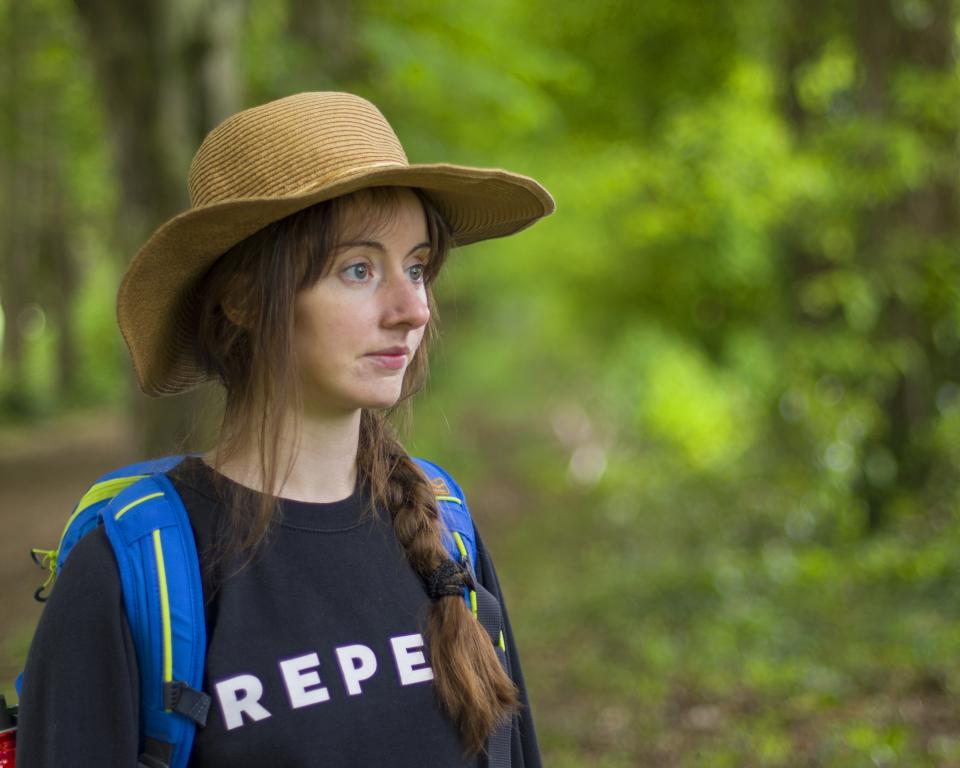What do the sea and a woman who just changed the world have in common? More than you might think.
The New Theatre’s Compostela offers insight into the life of an activist (Miriam Needham) in the wake of the referendum to repeal the eighth amendment. As she sets out on the Camino de Santiago, a long walk across Northern Spain to the town of Santiago de Compostela, Needham’s unnamed character grapples with the fatigue and disillusionment of fighting for social change. “I wouldn’t call what I’m having a breakdown,” she promises.
As Needham marches onward, she encounters fellow walkers turning back on themselves to retreat inland. Floods are looming, the weather forecast announces, and Santiago is to face down the storm. But Needham repealed the eighth. She changed the world, she tells us. And she won’t stop walking until the “Yes” vote wins – sorry, until she reaches the sea. As the story unfolds, Needham walks on the spot, her footsteps carving out a rhythmic beat which propels the play forward. On her way to Santiago, Needham recounts the fatigue and disillusionment reaped from knocking on doors and carrying banners down the quays, the trials of edging voters from a soft “Yes” to a hard “Yes”, a soft “No” into a soft “Yes”, and leaving the hard “No” voters alone.
“She wants to know why the language of canvassing must be peppered with apologies and gratitude, why she must thank a stranger on a doorstep for voting on human rights. She does know, of course, and the audience knows too.”
Interspersed with scenes along the Camino trail are interjections from the anthropomorphised sea, who wants to know why she inspires more postcard artwork than fear: “Yes, I’m pretty. Yes, I’m luminescent. But that doesn’t mean I can’t kill you.” She wants to know why people prefer to talk about her rather than to her. Needham wants to know the same. She wants to know why the language of canvassing must be peppered with apologies and gratitude, why she must thank a stranger on a doorstep for voting on human rights. She does know, of course, and the audience knows too. It’s one of the play’s emotional high points, and it rekindles the frustration and tension of the months leading up to 25 May 2018.
Compostela speaks to Ireland’s recent memory. It is engaging throughout, and drew a number of laughs to offset its more tense moments – a joke about being tired of Claire Byrne Live went down particularly well, and when another walker mistook Needham as British rather than Irish, a chorus of knowing “oohs” rippled through the audience.
One year on from the referendum to repeal the eighth amendment, Compostela does not feel stale or outdated. Rather, as Needham recalls the volume of discussions about women’s rights where there was previously silence, the play unwittingly calls attention to the collective quiet which returns once the dust has settled.
Compostela is part of the 2019 Dublin Fringe Festival and runs in The New Theatre until September 14.






